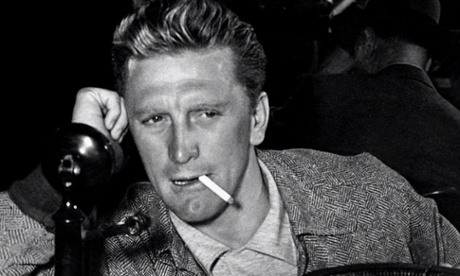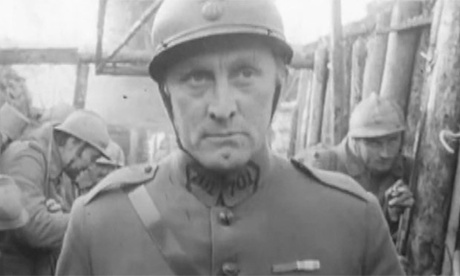It is one of the greatest British films of all time, directed in 1965 by David Lean with an A-list cast that included Julie Christie, Omar Sharif and Alec Guinness. But the epic adaptation of Doctor Zhivago, Boris Pasternak’s classic love story set against the Russian revolution, might never have happened if a planned US production had got there first.
James Fenwick, a British film historian, has discovered that two of cinema’s most revered film-makers – Hollywood star Kirk Douglas and director Stanley Kubrick – had tried in vain to acquire the movie rights earlier, in the late 1950s.
Kubrick wrote to Pasternak personally and Douglas hoped to shoot the production in the Soviet Union, previously unpublished material reveals.
Audiences can only imagine what might have been. Douglas and Kubrick collaborated on two other masterpieces, Paths of Glory, one of cinema’s most powerful anti-war movies, and Spartacus, the story of a slave uprising in the Roman republic, which they made in 1957 and 1960 respectively.
Fenwick said: “Zhivago is certainly an unknown fact about the careers of Douglas and Kubrick.”
Pasternak completed his novel in 1955, only for it to be banned in all Soviet states for its supposed attack on the Soviet Union. The manuscript was smuggled to the west and published in 1957 by an Italian publisher, which bought the rights from Pasternak. It helped him win the Nobel prize in literature in 1958.
Fenwick has been taken aback to find a letter of 8 January 1959, in which Kubrick had written to Pasternak, pointing out the quality of his previous work. “The last film we made, Paths of Glory, received the best picture of the year award in Belgium, Brazil and Finland,” he wrote. “We would now like to buy the motion picture rights to Doctor Zhivago. We have contacted the law firm in New York who represent the Italian publishers of the book. Negotiations are at a standstill as they are not yet prepared to finalise a deal.”
Further documentary evidence reveals that Kubrick and his producer James B Harris had wanted to acquire the book as early as December 1958 and that they had been in discussions with Bryna Productions, Douglas’s company.
Fenwick, senior lecturer in media at Sheffield Hallam University, will publish his discovery in two forthcoming books, Stanley Kubrick Produces and Shadow Cinema: The Historical and Production Contexts of Unmade Films, a collection of essays by leading scholars that he has co-edited.
He found evidence relating to Zhivago in the Kubrick archive at the University of the Arts London and among the Kirk Douglas papers at the Wisconsin Center for Film and Theater Research.
His initial reaction was disbelief that Kubrick would have wanted to adapt a literary masterpiece: “At that time he was more associated with pulp crime fiction.”
But, among Kubrick’s papers, Fenwick found a passage in previously unseen notebooks that probably date to the early 1950s. Kubrick wrote: “The precise moment of absolute success for a director is when he is allowed to film a great literary classic of over 600 pages, which he does not understand too well, and which is anyway impossible to film properly due to the complexity of the plot or the elusiveness of its form or content.”
Fenwick said: “[This] perhaps indicates how Kubrick might have gone about adapting something like Zhivago … I imagine it would have had the grand, epic scale of Spartacus, an adaptation of the 1951 Howard Fast novel.”
He also recalled his disbelief that Douglas should have wanted to produce a movie in the Soviet Union then, “considering the context in America of the Communist witch-hunt”.
But, with Spartacus, Douglas played a part in bringing an end to the Hollywood anti-communist blacklist in insisting to Universal pictures that blacklisted writer Dalton Trumbo be named as screenwriter.
Speculating that Douglas might have cast himself as Yuri Zhivago, the physician and poet played by Sharif, Fenwick added that, in filming in the Soviet Union, the actor wanted a greater role: “It reveals more about Douglas’s diplomatic tendencies and the way he saw himself as a cultural ambassador for the USA.”











